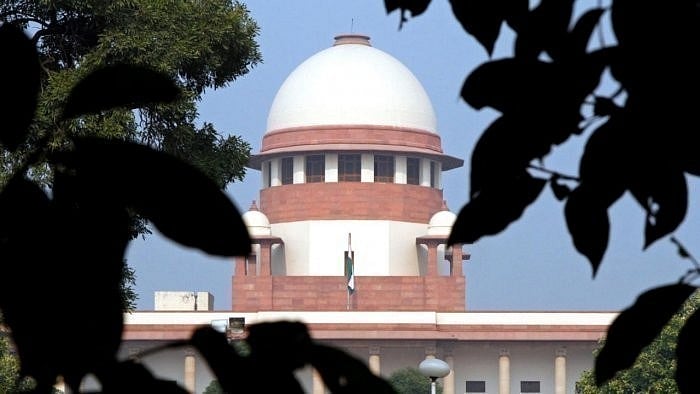
The Supreme Court of India.
Credit: PTI File Photo
New Delhi: After the suicide of Bengaluru techie Atul Subhash, allegedly due to harassment by his wife through matrimonial cases, a plea has been filed in the Supreme Court seeking a direction to form a committee of experts examine dowry harassment and domestic violence laws to prevent their misuse.
The plea, filed by advocate Vishal Tiwari, contended the Dowry Prohibition Act and Section 498A of IPC was meant to protect the married women from the dowry demands and harassment, but these laws have become a weapon to settle unnecessary and illegal demands from the husband’s family.
The plea said recently the tragic suicide of Atul Subhash, a 34-year-old techie in Bengaluru, has triggered a nationwide debate on marital discord, the misuse of dowry prohibition laws and also men's mental health.
“Before he died by suicide, Atul Subhash recorded an 80-minute video in which he accused his estranged wife and her family of slapping multiple cases on him and his family to extort money from them. Atul Subhash also criticised the justice system in his 24-page suicide note,” the plea said.
The plea contended that time has come to review and reform the existing dowry laws and Domestic Violence Act so that its misuse and abuse could be stopped and innocent men can be saved and the real purpose of the dowry laws may not be defeated.
The plea claimed because of the false implication of married man under these laws the real and true incidents against the women are looked with suspicion.
"There have been many incidents and cases of false implication of man in dowry cases which has led to very tragic end and also raised question on our justice and criminal investigation system," the plea said.
The petitioner pointed out on various occasions the Supreme Court has issued a note of caution against such false dowry cases and has asked the government and legislature to look into the issue but the government had not done anything effective to deal with the issue of false dowry cases.
In the case of Preeti Gupta Vs State of Jharkhand, (2010), the SC has said, "We would like to observe that a serious relook of the entire provision is warranted by the legislation. It is also a matter of common knowledge that exaggerated versions of the incident are reflected in a large number of complaints. The tendency of over implication is also reflected in a very large number of cases."
Recently on May 3, 2024 the Supreme Court in the case of Achin Gupta versus State of Haryana has observed and asked the legislature and government to reconsider the New BNS section 85 and 86, which are verbatim reproduction of Section 498A IPC, before its implementation, in view of possible misuse and the observations in Preeti Gupta case.
On December 10, 2024, the Supreme Court had sounded a note of caution against growing tendency to misuse provisions like Section 498A of the IPC as a tool for unleashing personal vendetta against the husband and his family by the wife.
